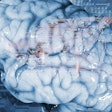Sunday, November 25 | 10:55 a.m.-11:05 a.m. | SSA12-02 | Room S406B
In this presentation, researchers will describe how the use of an artificial intelligence (AI) algorithm could obviate the need for many biopsies performed on thyroid nodules.The American College of Radiology (ACR) Thyroid Imaging Reporting and Data System (TI-RADS) was developed to decrease the number of unnecessary biopsies of thyroid nodules. These TI-RADS scores -- based on nodule features on ultrasound images -- are used along with the nodule size to determine whether a nodule should receive fine-needle aspiration (FNA) biopsy. However, even with TI-RADS, a large number of nodules are still found to be benign after being biopsied, according to first study author Ian Pan, a medical student at Warren Alpert Medical School in Providence, RI.
"We were interested in whether deep learning could learn how to differentiate between malignant and benign nodules on ultrasound and produce a 'malignancy score' that could be used to assess whether a nodule should be sampled," Pan said.
After training and testing convolutional neural networks (CNNs) to discriminate between benign and malignant thyroid nodules, the researchers found that their model could reduce the number of FNA biopsies by approximately one-third when operating at a 95% sensitivity level. Pan noted that they used CNNs based on the MobileNet architecture, which is designed for embedded mobile applications.
"Our vision was that the algorithm could be integrated into ultrasound machines and give malignancy scores in real-time," he told AuntMinnie.com. "Further work will directly compare TI-RADS (and possibly other guidelines) with the CNN malignancy score to see if there is any advantage to the CNN, or if combining the two could further improve performance."




















